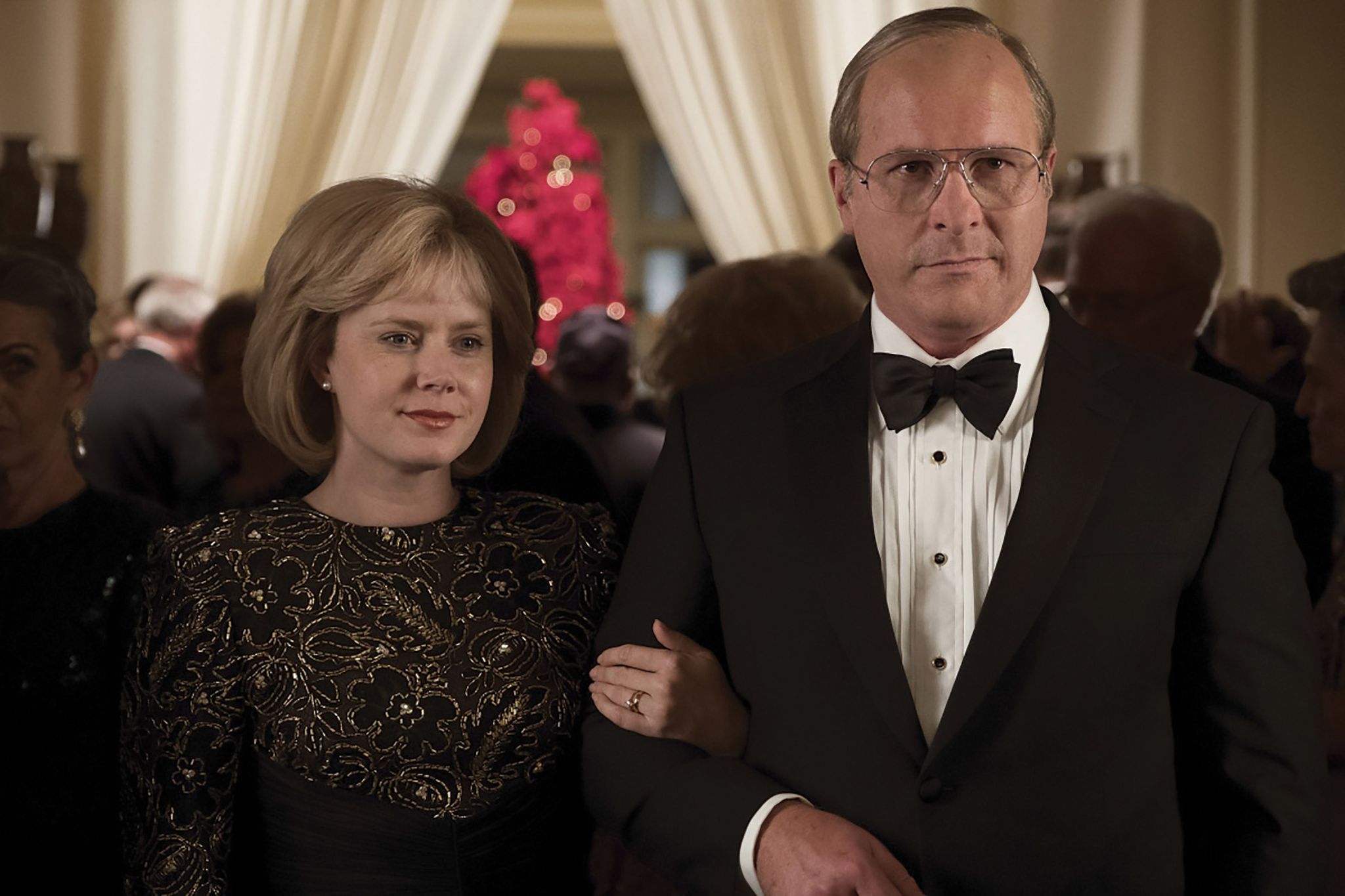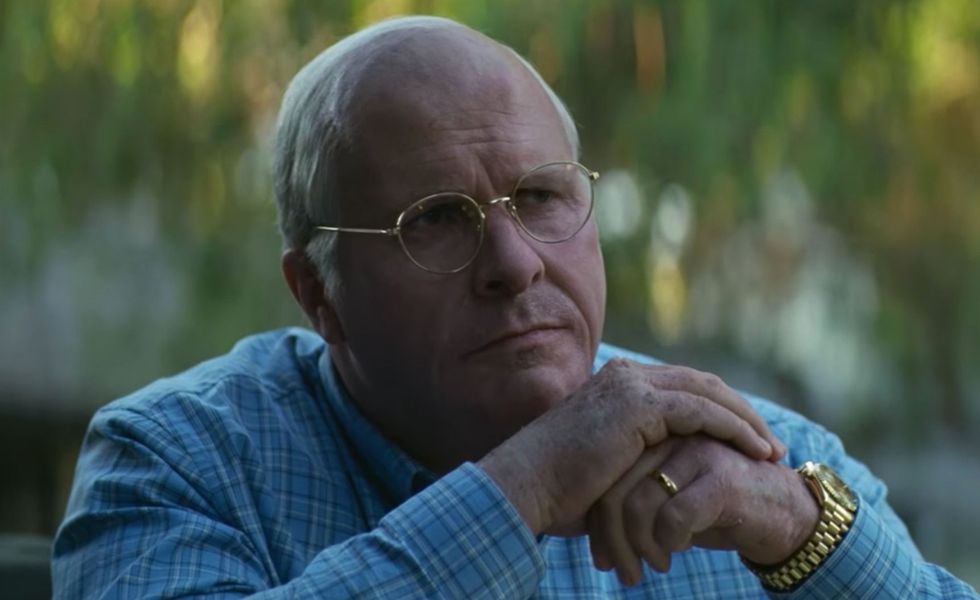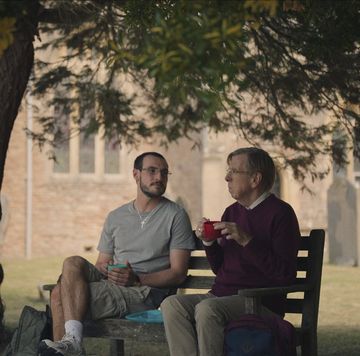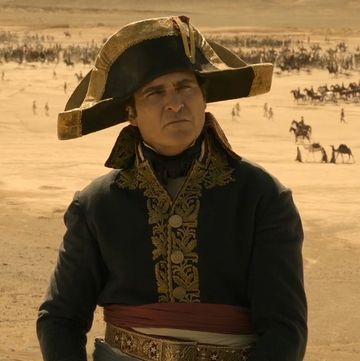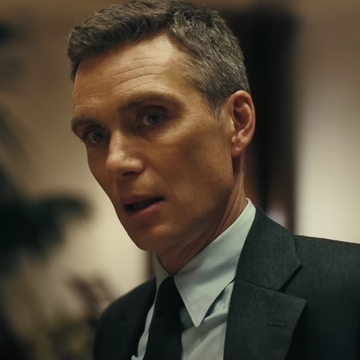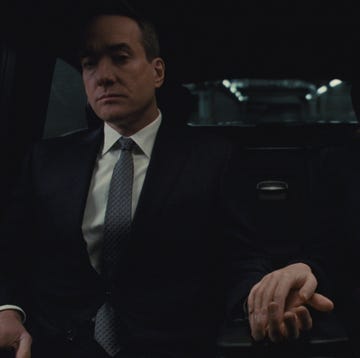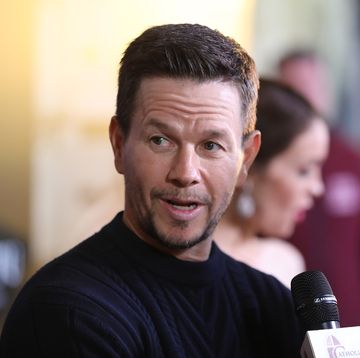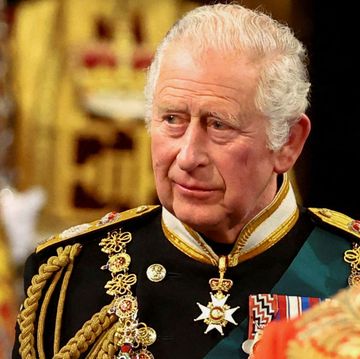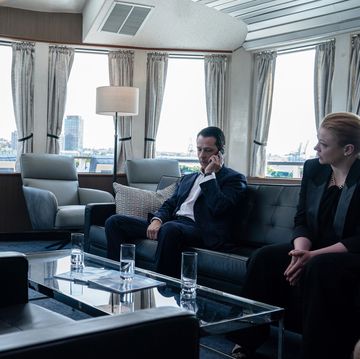Before seeing the latest film from writer-director Adam McKay (Ant-Man, Step Brothers, Anchorman), we had intended to brand it “the funny one”.
We knew it starred Christian Bale as US Vice-President Dick Cheney alongside Amy Adams as his wife, Lynne, Sam Rockwell as President George W Bush and Steve Carell as Secretary of Defense Donald Rumsfeld. We knew it had an excellent title and a snappy trailer, in which Dick and Dubya blithely discuss power-sharing options over fried chicken and iced tea. Having seen it, we rethought. Yes it’s funny, but the feeling you’re left with isn’t tickled ribs so much as a knot in your stomach.
As he did with his adaptation of Michael Lewis’s book about the 2008 financial crisis, The Big Short, McKay seems intent on turning a purportedly dry subject — the rise to power of Washington’s apparently most boring man — and giving it cinematic vim. There’s the improbable lead casting — Bale appears to be having fun, piling on three stone and speaking from the corner of his mouth in a voice that’s almost Dark Knight deep — and there’s funky music, archive inserts deployed for comedic effect (a lion taking down an antelope etc), and text overlays to explain the turgid terminology.
A male narrator gives a precis of Cheney’s early life as a “dirtbag” from Wyoming, or, as the formidable Lynne has it, “a big, fat, piss-soaked zero”, who found a White House internship in the Nixon era, watched and analysed the machinations of power, moved up the ranks in various Republican regimes, became CEO of oil services giant Halliburton, then got an unlikely call to be deputy to the soon-to-be President (in the most straight-up comic role, Rockwell has a blast). But who says the Veep needs to be second in command? And this, posits McKay, is where Cheney was at his most inspired and most dastardly, and is how Washington’s most seemingly boring man also became its most powerful.
Sound like a run-of-the-mill biopic? Maybe. Instead, McKay’s film is more of a frantic mish-mash and rules of cinematic consistency go out the window: in a scene, we hear Cheney’s internal voice, then never again; in another, just as Dick and Lynne are coming over a bit Macbeth, they start talking in cod-Shakespearean dialogue; characters frequently talk to camera.
And remember that male narrator? Just when you’re wondering who’s talking to you, he anticipates and articulates your question, announcing himself as Kurt (Jesse Plemmons), a youngish guy in a flannel shirt, telling you about Cheney because, he says, “they’re sort of related”. More details are drip-fed — Kurt with his wife and baby, Kurt in military fatigues — but when the reveal finally comes it’s heart-stopping.
But Vice’s formal disarray asks dark questions: is making a fun film about dry politics just a demonstration of the film-maker’s skill? Or an act of moral obligation, or desperation, to fling anything at the wall that might engage an audience and make them understand the power structures they have helped put in place and the wars that have sprung from them? Should we laugh at the people we have asked to lead us, or despair of them, and of ourselves? Does satire still have a place, or is the joke on us? But if Vice can make us laugh, and it does, at least we’re finally paying attention.
Vice is out on 25 January

Miranda Collinge is the Deputy Editor of Esquire, overseeing editorial commissioning for the brand. With a background in arts and entertainment journalism, she also writes widely herself, on topics ranging from Instagram fish to psychedelic supper clubs, and has written numerous cover profiles for the magazine including Cillian Murphy, Rami Malek and Tom Hardy.
